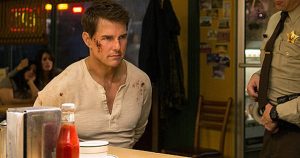The movie awards season officially begins with the announcement of the nominations for the Gotham awards. While not all of the awards contenders are out yet (I’m expecting to see “La La Land” and “Fences” do well), this is a good indicator of the direction we are likely to see this year. I was especially happy to see one of my favorites of the year, “Everybody Wants Some!!” on the list, and the special ensemble award for the extraordinary cast of “Moonlight.”
Best Feature
Certain Women
Kelly Reichardt, director; Neil Kopp, Vincent Savino, Anish Savjani, producers (IFC Films)
Everybody Wants Some!!
Richard Linklater, director; Megan Ellison, Ginger Sledge, Richard Linklater, producers (Paramount Pictures)
Manchester by the Sea
Kenneth Lonergan, director; Kimberly Steward, Matt Damon, Chris Moore, Lauren Beck, Kevin J. Walsh, producers (Amazon Studios)
Moonlight
Barry Jenkins, director; Adele Romanski, Dede Gardner, Jeremy Kleiner, producers (A24)
Paterson
Jim Jarmusch, director; Joshua Astrachan, Carter Logan, producers (Amazon Studios)
Best Documentary
Cameraperson
Kirsten Johnson, director; Marilyn Ness, producer (Janus Films)
I Am Not Your Negro
Raoul Peck, director; Rémi Grellety, Raoul Peck, Hébert Peck, producers (Magnolia Pictures)
O.J.: Made in America
Ezra Edelman, director; Caroline Waterlow, Ezra Edelman, Tamara Rosenberg, Nina Krstic, Deirdre Fenton, Erin Leyden, producers (ESPN Films)
Tower
Keith Maitland, director; Keith Maitland, Megan Gilbride, Susan Thomson, producers (Kino Lorber, Independent Lens)
Weiner
Josh Kriegman, Elyse Steinberg, directors and producers (Sundance Selects and Showtime Documentary Films)
Bingham Ray Breakthrough Director Award
Robert Eggers for The Witch (A24)
Anna Rose Holmer for The Fits (Oscilloscope Laboratories)
Daniel Kwan & Daniel Scheinert for Swiss Army Man (A24)
Trey Edward Shults for Krisha (A24)
Richard Tanne for Southside with You (Roadside Attractions and Miramax)
Best Screenplay
Hell or High Water, Taylor Sheridan (CBS Films)
Love & Friendship, Whit Stillman (Amazon Studios)
Manchester by the Sea, Kenneth Lonergan (Amazon Studios)
Moonlight, Story by Tarell Alvin McCraney; Screenplay by Barry Jenkins (A24)
Paterson, Jim Jarmusch (Amazon Studios)
Best Actor
Casey Affleck in Manchester by the Sea (Amazon Studios)
Jeff Bridges in Hell or High Water (CBS Films)
Adam Driver in Paterson (Amazon Studios)
Joel Edgerton in Loving (Focus Features)
Craig Robinson in Morris from America (A24)
Best Actress
Kate Beckinsale in Love & Friendship (Amazon Studios)
Annette Bening in 20th Century Women (A24)
Isabelle Huppert in Elle (Sony Pictures Classics)
Ruth Negga in Loving (Focus Features)
Natalie Portman in Jackie (Fox Searchlight Pictures)
Breakthrough Actor
Lily Gladstone in Certain Women (IFC Films)
Lucas Hedges in Manchester by the Sea (Amazon Studios)
Royalty Hightower in The Fits (Oscilloscope Laboratories)
Sasha Lane in American Honey (A24)
Anya Taylor-Joy in The Witch (A24)




